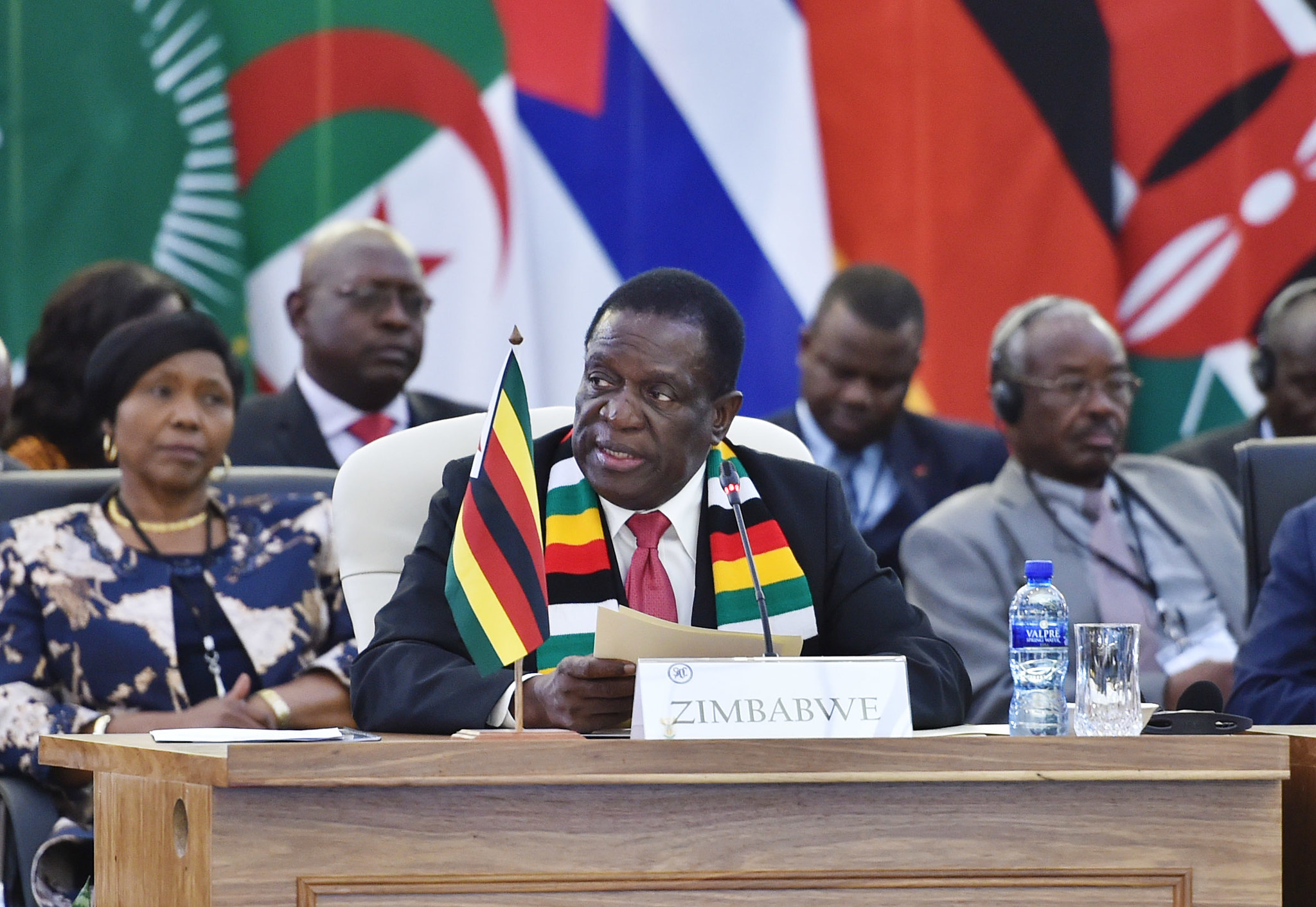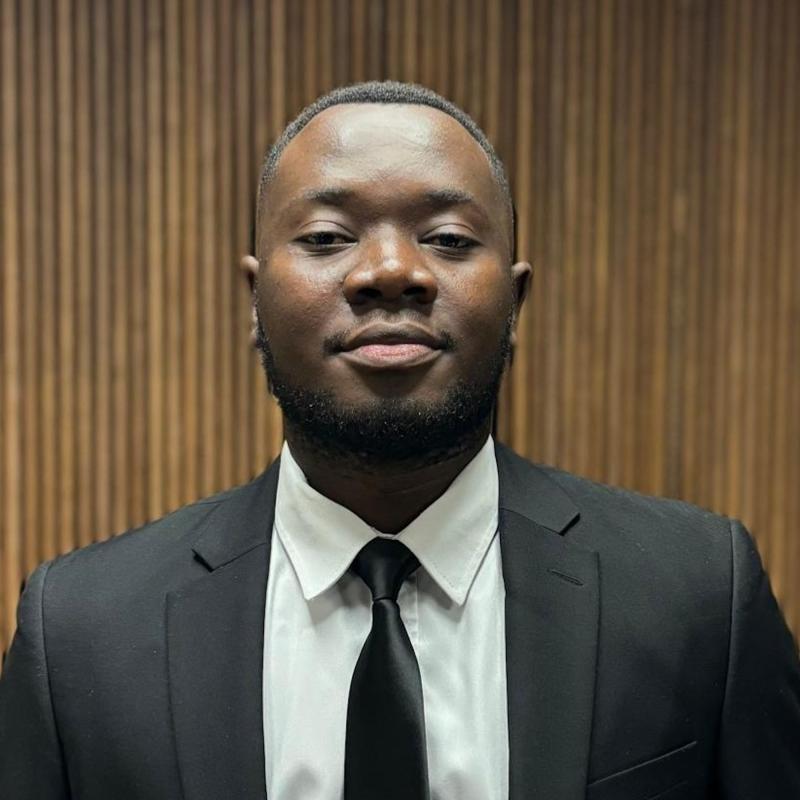Zimbabwe’s quick tariff decision: A sign of weak foreign policy?
Tinashe Nyamudeza, Master of Public Policy student and Oxford-Oak Zimbabwe scholar, explores how Zimbabwe’s swift tariff response to US tariffs reflects a reactive approach to foreign policy – and what it suggests about the country’s leadership of the Southern African Development Community.

A rushed response to global pressure
A few days after Donald Trump unveiled his global ‘Liberation Day’ tariffs in April, Zimbabwe’s President Emmerson Mnangagwa wasted no time waving the white flag, scrapping all duties on US imports. Just three days later, Trump announced a 90 day pause on the tariffs. And so we sat wondering: did Mnangagwa have insight we all did not see, or there simply was no method to his knee jerk response?
The second Trump administration has been brutal for many African states. As USAID funding was cut, Europe also reduced aid to Africa following the need to reinforce its defence spending. When tariffs then came, some countries took their time assessing the pros and cons of retaliating vs acquiescing. We did not hesitate. President Mnangagwa was very decisive as he took to X (formerly twitter) to announce he would be instructing his government to remove all tariffs on US imports. He also praised the protectionist policies by saying, ‘the principle of reciprocal tariffs, as a tool for safeguarding domestic employment and industrial sectors, holds merit’.
Zimbabwe became one of the few examples that the Trump administration would use to signal success of the tariffs. Unsurprisingly, comedy shows had a field day, and they rightly pointed out the insignificance of Zimbabwe’s trade with the US in the grand scheme of things.
Foreign policy or political appeasement?
Zimbabwe currently chairs the Southern Africa Development Community (SADC), but it’s unilateral action on US tariffs point to fractures within this regional bloc. Lesotho, to our surprise, was hit with a staggering 50% import tax. South Africa, our biggest trading partner and vocal defender against decades-long US sanctions, has been under political attack since the beginning of the second Trump administration. Was this not the opportunity for Mnangagwa to stand by South Africa, and consult Lesotho as chairman how the regional bloc can help? Going forward until the chairmanship ends, what quality of leadership can SADC still expect from Zimbabwe?
Mnangagwa’s decision was largely a political one, an appeasement tactic made from fear of the return of sanctions or a desperate attempt to be removed from the Magnitsky list – a set of sanctions targeting individuals accused of corruption or human rights abuses. Even though broader sanctions were suspended by Joe Biden in 2024, Mnangagwa and a few others remain on the list for corruption and protecting gold smuggling networks. Al Jezeera’s exposé on the Dubai-Gold Mafia gave the world insight into these dealings.
The risks of reactionary diplomacy
It is perhaps commendable that the president was able to respond so quickly and made no enemies. After decades of diplomatic hostility with the United States, we certainly don’t need another fallout. South Africa’s precarious position regarding land redistribution policies, and the push back from USA, sounds all too familiar for Zimbabweans. Our fast-track land reform programme is one of the reasons we were sanctioned by the western world. Secondly, Mnangagwa’s chairmanship has fostered better SADC-East African Community diplomacy over Democratic Republic of Congo, promoting a more united internal approach to African matters.
However, Zimbabwe’s unilateral response to tariffs and strained relationship with Zambia speaks volumes about our leadership and whoever makes foreign policy decisions in Zimbabwe’s executive. Small states like ours cannot afford to underestimate the global context or respond without deliberation.
It wasn’t long ago when the whole country recoiled as President Mnangagwa publicly complained to Putin about how Hakainde Hichilema’s friendship with the US was making Zimbabwe feel ‘lonely’ in the region. So, if giving in to Trump’s tariffs was an appeasement strategy, did the president expect the US to suddenly forget how we have deepened ties with Russia for decades now?
Going forward, would it hurt to wait a little more than four days before making foreign policy decisions? Arguably, President Mnangagwa has done better that the horror show we were subjected to under Mugabe for 37 years. But while I recognise that Rome wasn’t built in a day, I daresay that our foreign policy has been, at best, incoherent – and at worst, an embarrassment.
As the world order is being revised at a much faster rate, we need to abandon reactionary foreign policies. Europe is descending into an arms race in the face of Russian aggression and far right politics is taking centre stage. Closer to home, coups are becoming alarmingly common, and climate change is beginning to bite. Amidst all these changes, or maybe lack thereof, this is not the time for knee-jerk diplomacy, especially if one is the chairman of the SADC.

